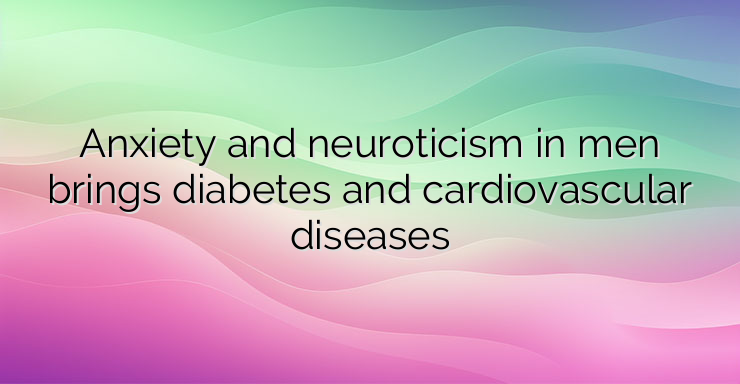Middle-aged men who experience anxiety are at higher risk of developing cardiometabolic conditions — heart disease, stroke and type 2 diabetes — as they age, Boston University researchers found. To assess the relationship between anxiety and cardiometabolic risk, they analyzed data from 1,561 men, mean age 53, in 1975. Participants also underwent a baseline assessment of anxiety and neuroticism, and were free of cardiovascular disease at the time of the study. Participants self-rated their neuroticism on a scale of 0 to 9, additionally reporting how often they felt anxious on 20 items, indicating from 0 to 4 whether the feeling was fleeting or persistent. Neuroticism is a personality trait characterized by a tendency to interpret certain unpleasant situations as stressful and dangerous. People with high levels of neuroticism tend to experience negative emotions more intensely and more often, such as fear, anxiety, and sadness, explains Dr. Levina Lee, lead author of the study and associate professor of psychiatry at the university’s School of Medicine. She is also a researcher and clinical psychologist at the National PTSD Center at the State Department of Veterans Affairs. Anxiety, on the other hand, refers to our attempts to solve problems whose future outcome is uncertain. Anxiety can be adaptive and then lead us to constructive solutions, but it can also be unhealthy when it becomes uncontrollable and interferes with our functioning, explains Associate Professor Lee. After filling out the questionnaires, the health status of the volunteers was checked every 3-5 years through a medical examination and blood tests. The team collected the data through 2015. In the latest health assessments, seven risk factors were measured – systolic blood pressure, diastolic blood pressure, total cholesterol, triglycerides, BMI – body mass index, fasting blood sugar and ESR. According to the researchers, men with higher levels of anxiety were more likely to develop cardiometabolic diseases as they aged, in contrast to men with lower levels of anxiety. Participants with higher levels of neuroticism had a greater number of high-risk cardiometabolic factors, with higher neuroticism being associated with a 13% higher likelihood of having six or more risk factors. The presence of six or more risk factors for cardiometabolic diseases suggests that a serious health disorder or at least cardiac and/or metabolic disease is already present. Although it is not yet clear whether anxiety therapy can reduce cardiometabolic risk, people prone to anxiety and neuroticism are advised to pay attention to their condition. The anxiety disorder is corrected through psychotherapy and, if necessary, medication.The results of the study are presented in the Journal of the American Heart Association. Sources: Neuroticism, Worry, and Cardiometabolic Risk Trajectories: Findings From a 40‐Year Study of Men | Journal of the American Heart Association (ahajournals.org)


Leave a Reply